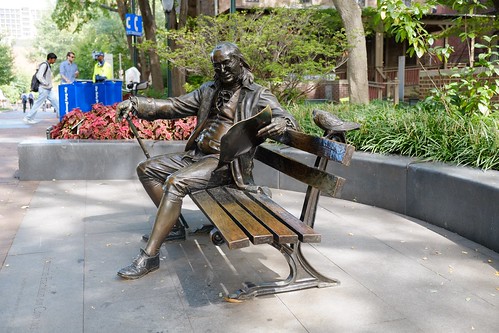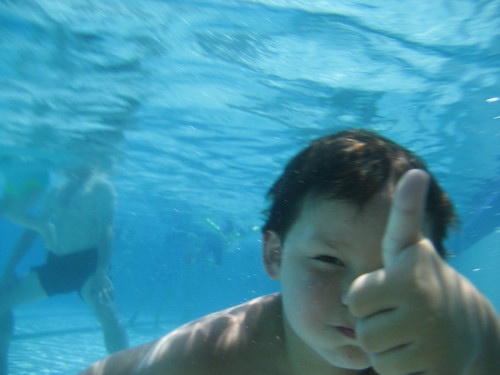Doctor and New York Times contributor Richard Friedman writes in today’s Sunday Times about swimming, flow, and problem-solving:
There is no drug — recreational or prescription — capable of inducing the tranquil euphoria brought on by swimming. I do all my best thinking in the pool, whether I’m trying to figure out how to treat a patient’s complicated ailment or write a paper. Why that is is mysterious, but I have a theory.
Assuming you have some basic stroke proficiency, your attention is freed from the outside world. You just have to dimly sense the approaching wall before you flip turn and go on your way. Cut off from sound, you are mostly aware of your breathing. You have to traverse boredom before you can get to a state of mental flow. Now your mind is free to revel in nonlinear, associative thought. Nothing has to make sense. You suddenly become aware that time has passed. You are not sure what elapsed in that strange discontinuity, but the solution to a problem that escaped you on land is perfectly obvious emerging from the water — a rapturous experience.
In REST, I don’t have many people who were regular swimmers: Le Corbusier swam almost daily, and there were a bunch who were swimmers in college. Lord Kelvin, for example–
usually began his morning [at Cambridge] by a rapid walk or run, before breakfast, around the College Grove. Every day, almost without intermission, summer and winter, he used to take a dip in the waters of the Cam, sometimes making his way to Byron’s Pool for a plunge.
—but I have a huge number who were athletes, or who would spend several hours a day walking in the hills or carting books or doing other physical activity. In fact, I was impressed that their idea of “rest” was often more vigorous than our idea of “exercise.”
Friedman goes on to talk about a family connection in swimming:
My love of swimming is as emotional as it is intellectual. My father, who was a great swimmer, taught me to swim when I was very young. We swam together in every conceivable body of water for years, so swimming is inextricably bound to my relationship with my father, who was an engineer and a deeply curious person.
Though we never discussed it, I suspect that he, too, swam not just for health, but to think. He would return from a long swim and disappear into his office, emerging hours later excited about an insight into a new technology or instrument.
This is consistent with something else I see: often, super-creative and -productive people have hobbies that or choose sports that have a family connection, or which hearken back to their past. For example, a number of my figures (including several Nobel laureates) were gardeners; and almost all of them grew up on farms or villages, and often were the children of farmers or avid gardeners.
For some reason, the piece reminds me of the ritual I had in college of reading pieces of the Sunday Times with my fellow dorm-mates. There was a very informal brunch (dining service was closed on weekends), with bagels and coffee and juice, and we’d hang out and read the paper.

Ben’s probably not reading the Sunday Times, but still…
Reading the Sunday Times felt like an eminently civilized, and somewhat adult, thing, one of the few East Coast rituals I actually embraced and enjoyed (I loved Penn, but I was always conscious there of being a Southerner— or perhaps I was diligent in maintaining a little sense of being an outsider).
